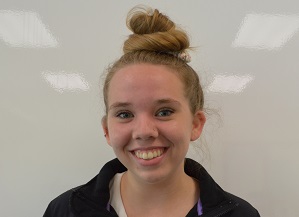Becton administration to implement innovative ‘School Improvement Plan’ for next school year

April 21, 2015
Along with a modified rotating drop schedule, the 2015-2016 school year will now offer approximately twenty new courses, a stronger ambiance and a curriculum better suited to prepare Becton students for their futures. Principal Dr. Sforza notes that this is not just an improvement plan, but “is necessary to meet all levels of learners.”
After Becton administration assessed, reviewed and analyzed the current 8-period schedule, they felt that it had been deemed “inflexible and rigid.” For example, in the present schedule students take seven classes, which are forty-five minutes long. This system leaves no leeway for students to include a diverse selection of academic electives into their schedule, but rather only gives them options for one or two courses of their choice per year.
The inspiration for the School Improvement Plan is simply the students. Dr. Sforza sees the replacement schedule as the “foundation to build a wonderful school climate and culture that will meet the academic and college and career readiness needs of our students.”
The Becton administration now has the ability to build upon the modified rotate drop schedule to add a multitude of academic electives and career-oriented programs for the students because of the flexibility allowed by the daily rotation.
The new schedule allows students to take eight classes as opposed to the current schedule, which allows for only a maximum of seven classes to be taken each year. The new schedule includes a common lunch and rotates between four days. Although students will have eight classes all together, they will never meet with more than six classes in one day. Each period will be extended by 10 minutes to be 55 minutes, which will result in the school day ending at 2:46 p.m. The days will be determined by an A, B, C and D day, which will rotate daily and weekly. Along with the days changing, the period in which a class meets will also drop each day. For instance, first period on an A day, which would meet at 8:05 a.m., would meet during the third time slot period, approximately 10:05 a.m. on a C Day and might not meet at all on a B day.
The modified rotate drop schedule has proven efficient and successful in high schools around the state for many reasons, one being because of statistics showing that students learn better at different times of the day. Therefore, according to Dr. Sforza, the drop aspect of the schedule design provides “all developmental levels of learners with the same educational experience by having classes meet at different times of the day, therefore allowing students to retain more information, increase their focus and decrease their stress.”
Added benefits to this new system are the potential for smaller class sizes and countless new courses. Moreover, the renaming of some of the upper level classes eases confusion and helps clarify the course description. For example, all advanced, or ‘A’ classes, will be renamed ‘Honors’ courses. Academic classes, such as math or English, will be able to meet and help students of all academic levels. A specific example is the algebra course. This class will now have three options: algebra, Algebra College Prep and Algebra Honors.
The new academic courses are “directly related to careers” students might wish to pursue, said Dr. Sforza, such as elective options including AP Statistics, Forensics, Criminal Justice, Sports, Entertainment and Fashion Marketing, International Business, Shakespearean Literature, Culinary Arts, Engineering and Journalism II. The career-related courses will provide students with the hands-on experience they need in order to be better prepared for the 21st century college and career workforce.
Moving on, multiple career-oriented courses are being added to the science and business departments to match growing student interest within those fields. There will be a horticulture class, which will give students the opportunity to work in Becton’s new greenhouse constructed last year during the school’s restoration. Furthermore, the Business Department will be renamed the “Career and Technical Education Department.” Career and Technical Education electives will include classes such as Marketing in the 21st Century, Sports, Entertainment and Fashion Marketing, International Business, Entrepreneurship and Web Design II, which will focus on coding and video game design.
Dr. Sforza asserted that “the new vision is to design a schedule that will eventually allow us to create academic career tracks for students attending Becton while creating an atmosphere that is conducive to student learning and similar to what they will experience after high school, whether it is college, a technical school or the workforce.”
A remarkable change the new schedule permits is the prerequisite number of credits needed for graduation. The Class of 2016 will need 125 credits, the Class of 2017 will need 130 credits, the Class of 2018 will need 135 credits and the Class of 2019 will need 140 credits. The increased number of credits will make students more marketable to admissions counselors when competing for limited spots within certain colleges as well as provide students who choose to enter the workforce with the necessary skills needed to succeed.
The School Improvement Plan will not only be revising the scheduling system at Becton, but Dr. Sforza also intends to make a multitude of improvements to Becton’s overall learning experience. The developments include a senior “College and Career Center” in the upstairs media center, a place in which juniors and seniors will be able to discuss and pursue their education after high school through means of laptops, college brochures, meetings with college recruiters and staff members.
A new, innovative, and career-focused program will also be available for seniors who wish to rearrange their schedule to have their afternoon open to be part of an internship experience based upon their career interest. The Becton Career Exploration Internship Program (BCEIP) will prepare seniors not only for what to expect in their future career choice, but also how to create and present a resume, perform during an interview, network and establish connections and juggle multiple responsibilities. Next year’s BCEIP pilot will be limited to a select few with a rigorous and stringent application process, but will result in skills needed for a lifetime. The hope is for the Becton Career Exploration and Internship Program to grow year after year.
Last but certainly not least, a change that is being made to improve the morale of the students and decrease stress levels is having a common lunch. The term ‘common lunch’ refers to the fact that every student will be eating lunch at the same time. Having only one lunch period gives students the possibility to have a more flexible decompression period. Seniors will still be permitted to go out during lunch; however, those who need to stay inside have the choice of going to the gym to get their energy out by playing a game with their friends, the library to work on homework or meeting with club advisers since each student has the same lunch. Another aspect of the new lunch is having lab sciences meet for approximately twenty minutes during the period rather than students getting taken out of gym or study.
According to Dr. Sforza, the diverse components of the School Improvement Plan mimics the 21st century skills students need to be successful in their future while simultaneously meeting the differentiated learning levels of Becton students. Through these changes and the exciting new schedule, students will be able to receive hands-on experiences in specific career fields of their choice leading to an increased love of learning and an overall more positive school climate and culture.




